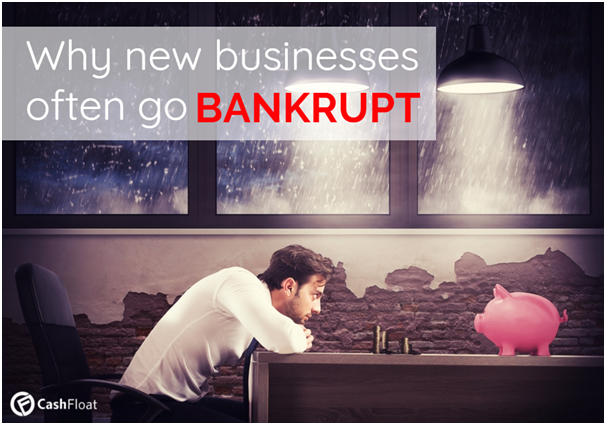By Elizabeth Redfern
We’re in business!
All new businesses begin with hopes and dreams, aspirations and grand plans. Yet if we look at the statistics, over 14,000 businesses in the UK alone declare insolvency every year! The question then is: What goes wrong? Why are so many businesses being forced to close?
Bad Decisions
Running a business can be quite tricky, and people who have never done it before are quite prone to making bad decisions. For example, it is easy to think that hiring many workers increases productivity which in turn increases profits. However, this also means that paying the wages will eat up most, if not all, of the profits, leaving the business struggling. Another bad decision is to invest in fancy offices to enhance their reputation. They invest too much money, too soon into the business.
These mistakes can work out to be quite costly, and some business never recover. To launch a successful business needs careful planning and lots of patience. If something is not essential, don’t spend money on it – and definitely don’t take out a loan to finance it.
Everyone makes mistakes. But poor planning and unrealistic expectations often lead to dire situations for a new company, which often could have been avoided.
Business Financing
If a company doesn’t have financial power, it’s very easy for it to fail. Many people assume that their business will be successful. They take out business loans or even short term loans UK to kick start the company, hoping that business will boom and they’ll meet the repayments without any problems.
This is very risky, especially as businesses don’t usually start making a profit for a while. The owners know it’s a risky strategy, so why do they do it? The answer is simple – they have no choice. When their savings aren’t enough, and no angel investors are forthcoming, a loan is often the only answer.
Some businesses are very glad they took this risk – profits soared, they paid off the loan early, and are now operating as a successful business. However, this doesn’t always happen. Often, the business is struggling to turn a profit, and the creditors come knocking before they are in a situation where they can repay anything. The easiest way for a business to fail is through a lack of financing.
Unstable Market
When the market is stable, and growing nicely, people tend to be more confident in spending money. New businesses are more likely to succeed. However, when the market is more unstable, people are far less inclined to spend money, and worry more about their own financial security. It is usually more difficult to successfully launch a new business in a bad economy than a good one.
Another aspect to consider is the specific market a business fits into. Even when the economy is booming, there are some markets that are failing. For instance, the rise in popularity of online retail has led many in-store wholesale and retail companies to fail. Correspondingly, an individual market may be doing very well despite a bad economy. Identifying how both the economy and the individual market are doing, and considering how this is likely to affect a new business, is a vital stage of pre-planning that many people overlook.
When is a short-term loan the right option?
It can be very tempting to just borrow a bit more money, to keep the business going. Sometimes, some short-term credit may be all that the business needs. Often, though, a more thorough solution is needed. The trick to using short term loans correctly is to be 100% honest with yourself.
Are your expenses reasonable? Do you really need the money now? Is there any other way you can source the money? If you hold back on the big, not-completely-necessary purchases until the business is making a comfortable profit, you are less likely to spend more than your funds allow. If you’re not certain how you’ll be able to repay the loan, do everything you can to avoid taking it out.
The main problem with a short-term loan lies in its name – it’s only for a short period of time. If you’re borrowing until the business beings to make a profit, try to get the longest term possible. So, when is a short-term loan the right option?
If you need the money urgently, and you know there is more money coming in soon – for example, a big order will be coming through, or you’ve just signed a deal with an investor – then a short-term loan may be the correct answer. There are many options available, including Cashfloat – a new generation lender.
Cashfloat’s short term loans
Cashfloat is a new, moral lender, whose business model was built around the FCA regulations. Their keywords are honesty, integrity, and transparency, and they offer short term loans with ultimate flexibility. Early repayment will save you money on interest – so if your business does better than expected, you can pay less on the loan.
If, however, you run into difficulties, Cashfloat are happy to rearrange your payment plan at no extra charge. Their loan terms range from one month to four, so if you need a short-term cash injection to keep your business running, a Cashfloat short term loan may be the perfect thing for you.
